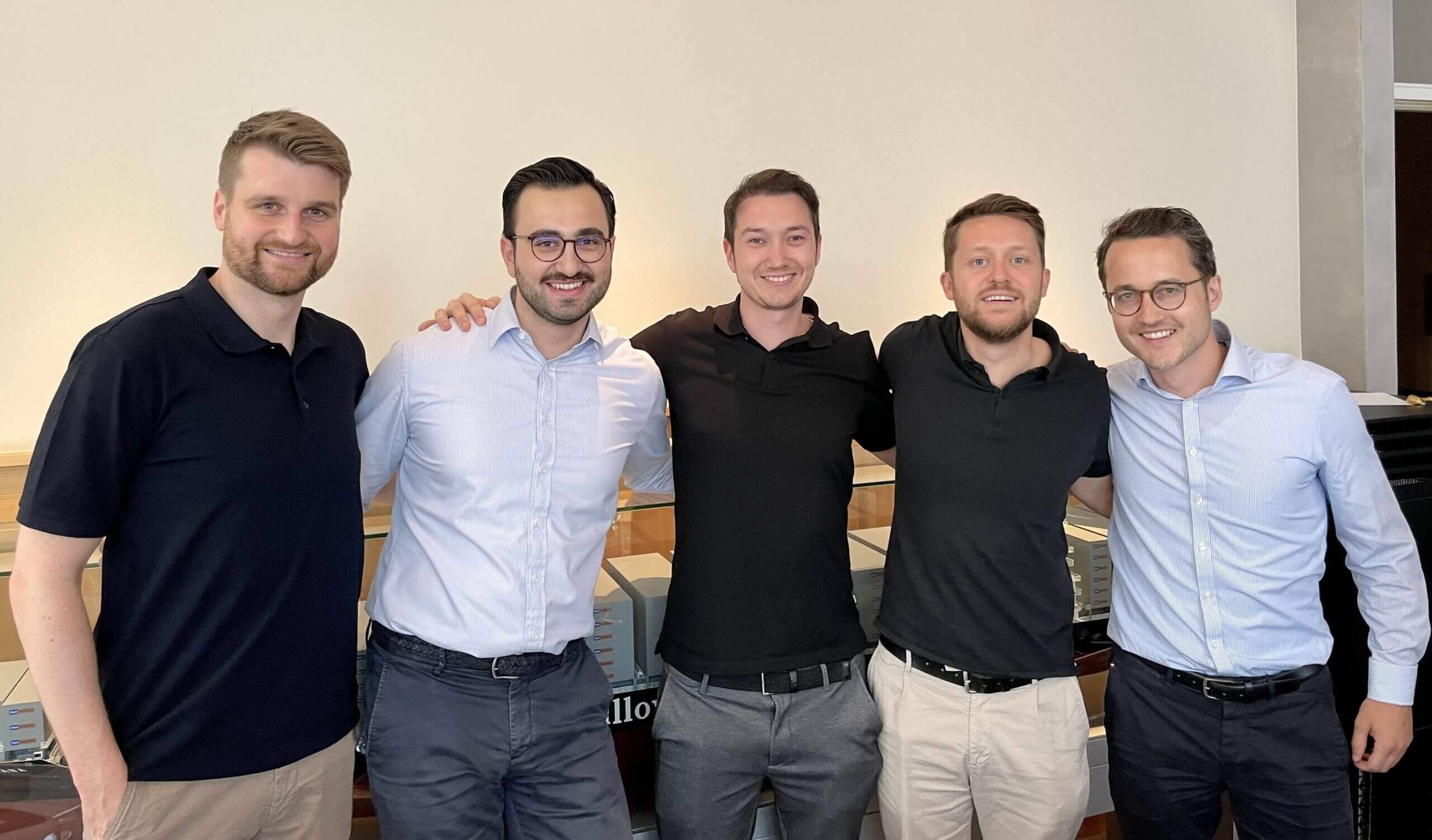
Amazon’s Future

Jeff Bezos recently handed over the Amazon CEO post to Andy Jassy. After his successful foray into space, however, the company’s founder will continue to have a major influence on the next steps in the company’s development.
It’s been just under three weeks since Jeff Bezos said goodbye to his CEO post at Amazon and moved to the top of the supervisory board. After 27 years of building up the company with the result of having created one of the largest, most successful and most powerful companies in the world, the founder of the e-commerce and cloud giant could certainly enjoy his flight into space with the space company Blue Origin, which he also founded. What now lies immediately ahead for the group may be clear to some observers at first glance, but for others it is also a big question mark. Hannes Detjen, founder of Remazing, summarizes below which existing and new business areas Amazon is likely to increasingly focus on in the future.
Bezos’ legacy lives on
Despite all the justified criticism of Amazon’s business practices and the weaknesses that the group has, from a purely business perspective it remains to be said first of all that Jeff Bezos has achieved one of the greatest entrepreneurial feats in recent history. Nevertheless, after Bezos is not the same as without Bezos – and so it will be exciting to see to what extent Amazon’s new CEO, Andy Jassy, will be able to set his own course in the future under the watchful eye of the largest shareholder who has taken on the role as Chairman of the Supervisory Board. Jeff Bezos once said in an interview that he always thinks three years ahead in his day-to-day work. The current quarterly figures are therefore usually the result of the decisions he and his management team made 36 months earlier.
So it now remains to be seen to what extent Andy Jassy will first have to ‘only’ work off the legacy of his predecessor in the next few years and where the future of Amazon will possibly lie beyond e-commerce and cloud technology. Started as an online book seller in 1994, Amazon is now a conglomerate of service-based (subsidiary) companies and business units that is increasingly spreading into a wide variety of industries. Driven by its own “customer obsession,” Amazon is increasingly influencing the everyday lives of its B2C customers. But the group is also growing increasingly stronger from a B2B perspective, and not only with regard to its own cloud division Amazon Web Services (AWS).
Advertising is the new AWS
Amazon’s new CEO is largely responsible for the success of AWS. Since 2006, Andy Jassy has been head of the subsidiary that has contributed significantly to Amazon’s profitability and development as a tech company over the years. Now, in his new role, Jassy finds himself with a burgeoning division that, in a way, echoes the evolution of AWS: Amazon Advertising.
With year-over-year revenue growth of 77% in 2020, it was already very clear what potential lies in Amazon’s own advertising capabilities, which are now being increasingly developed and opened up. The Seattle-based group is catching up at a fast pace with other tech giants such as Google and Facebook, whose margins are mainly driven by the ad solutions business. Amazon DSP and Amazon Attribution are two forward-looking examples of Amazon Advertising. Under these conditions, Andy Jassy will certainly now want to repeat his previous success with AWS in this segment in the coming years – which does not mean, however, that AWS will become less important.
More entertainment for customer loyalty
Closely related to Amazon Advertising, the further development of the Entertainment segment will be of particular importance in the near future. The integration of MGM Studios, which was acquired for 8.5 billion US dollars, will point the way forward. Amazon already offers access to numerous series, films, and background information with its streaming offering and the IMDb film database. However, the expansion of the Prime Video offering as well as its own production capacities promises even greater revenue potential than before, especially in combination with the growing advertising business. From this perspective, the purchase of the broadcasting rights to the two highest leagues in French soccer, for example, is also a strategically clever move. Good entertainment should attract new customers and retain existing ones. The growing number of Prime subscriptions worldwide will generate lock-in effects that will lead to further, growing revenues.
Against this backdrop, one may also be curious to see whether the Group will catch up with Spotify and Apple in the booming podcast market. The acquisitions of the production company Wondery and popular podcasts such as “SmartLess” (for 80 million US dollars!) definitely suggest that the company still sees great potential here, which will not be left to the competition without a fight. The return of Jeff Blackburn underpins this: After a brief interlude as a startup investor, the Amazon veteran is to lead the newly reorganized “Global Media & Entertainment” division as Senior Vice President and set it up for the future in a targeted manner.
Gaming, Twitch and Social Commerce

Subscribe to our newsletter now and receive regular updates on Amazon and other online marketplaces.
Subscribe to the newsletter now.
But it’s not just more traditional entertainment formats like audio or video that can be listened to or watched on-demand that will be Amazon’s focus in the coming years. With the acquisition of Twitch a few years ago, the Group has acquired an important player in the growing gaming market at an early stage. Livestreaming operated by “online creators” is enjoying growing popularity even far beyond the focus on video game content. Depending on where the attention of certain target groups lies, good money can be earned with advertising – as in the case of Twitch. The platform will become even more important for Amazon’s advertising business in the coming years than it already is.
But the video games market as such is also increasingly being targeted by Amazon: With Amazon Luna, the company has been aiming to appeal primarily to ‘casual gamers’ since last October. The cloud gaming service works like Amazon Prime and gives users access to a wide range of online games. With global sales larger than the worldwide movie industry, the gaming industry is very likely to get even more attention from Andy Jassy and his leadership team.
With regard to Amazon’s streaming activities, the growing importance of “social commerce” must also be mentioned. What is already the norm in Asia is slowly but surely finding its way into Amazon’s core business – livestreams of influencers presenting products for online purchase. Unlike competitor Walmart, which has already conducted tests with shopping opportunities within the short video app TikTok, Amazon is trying to incorporate the social elements on its platform. Even if the e-commerce giant may still be a bit behind in comparison here at the moment, one can expect the introduction of new developments step by step in the coming years, which should appeal to younger Gen Z shoppers in particular.
From FBA to more Seller Services
Meanwhile, a majority of Marketplace sales are generated by sellers taking advantage of “Fulfilment by Amazon” (FBA). So it’s no wonder that store buyers like Thrasio still see a lot of untapped potential for selling on the Marketplace and have triggered a real hype with massive funding rounds in the last year and a half. However, it is well known that Amazon sometimes plays hardball with the merchants on its platform. Nevertheless, Amazon seems to want to focus even more on its seller customers in the future. After the failure of Amazon Webstore, the Bezos Group was in competition with Shopify for some time without a store system solution that would give retailers even more opportunities to successfully build up their online business. After the takeover of the Australian tech company Selz, there could be some movement here. A greater focus on B2B services for its own Marketplace should enable Amazon to influence the global e-commerce market even more comprehensively. More brands and products on its own platform should ultimately mean even more satisfied customers. Coupled with the massive expansion of its own logistics in recent years, Amazon could almost completely dominate the value chain in online commerce in the future, from the store system, through product discovery and advertising, to delivery.
Food delivery, pharmacy and other services
The fact that Amazon could significantly change grocery shopping in brick-and-mortar retail in the coming years with its cashierless “Amazon Go” supermarkets is quite likely given the opening of the first stores outside the United States. Thanks in particular to the potential licensing of its own technology, the face of supermarkets could be changed in many countries. Nevertheless, the Group is currently losing out in the delivery of groceries and is itself being “disrupted”. Quick commerce providers such as Gorillas and Flink deliver groceries within just 10 minutes – something Amazon is currently unable to do. The e-commerce giant is said to have already targeted a takeover of the latter provider. Since Amazon owes its success in particular to targeted acquisitions, it should only be a matter of time before the Bezos Group can also deliver groceries to the door in just a few minutes.
Likewise, online retailing of prescription drugs via Amazon Pharmacy is likely to become a reality in other countries sooner rather than later after the launch in the USA. The UK and Germany are in pole position here as the most important markets in Europe. Amazon is also working on telemedicine solutions and other health services. Amazon is therefore serious about its goal of becoming a “basic provider” that offers its customers the right products and services for all their everyday needs. The company has been offering financial services for some time now, but Andy Jassy is sure to discover one or two untapped potentials here as well, and may even move into the area of insurance. A rather simple service that has also been tested in the USA for a few months: Furniture assembly. Here, too, it is clear that Amazon increasingly wants to move away from a purely transactional customer relationship toward a service offering that establishes Amazon even more as the “provider for everything” among consumers. Once Amazon, always Amazon.
What remains is Day 1
Almost three decades after its founding, the Seattle-based company is still in as much of an upbeat mood as ever. In addition to all the sales records that Jeff Bezos was able to celebrate at the end of his time as CEO, also thanks to the Corona pandemic, one thing in particular is the real legacy that Andy Jassy will continue to uphold as a true “Amazonian”: The “Day 1” mindset. With his colossal obsession with detail and focus on profitability, Jassy will maintain the company’s fundamental direction under the watch of his former boss and good friend Bezos, while certainly adding a new focus or two himself. Discussions about digital taxes, the global minimum tax, or competition proceedings are therefore likely to be “only” temporary irritants that will not divert Amazon from its course.
This article has first been published at Internet World.
Are you interested in an expert analysis of your Amazon account?
Request free analysisRelated articles
Remazing GmbH
Brandstwiete 1
20457 Hamburg
©Remazing GmbH



